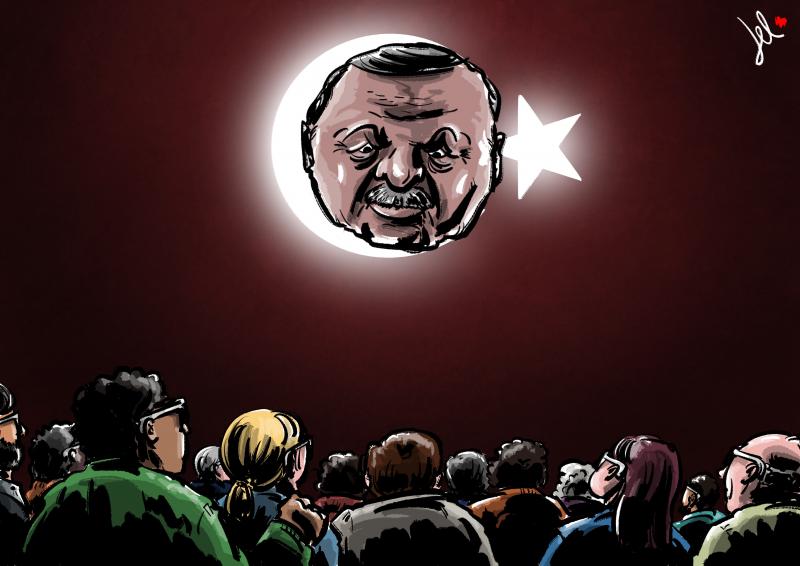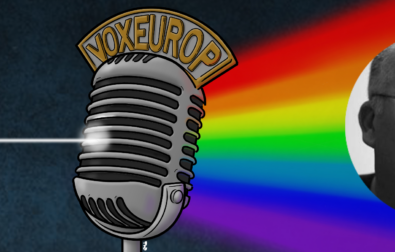Turkey's presidential and parliamentary elections in May 2023 were a de-facto plebiscite. Voters went to the polls in droves to say yes or no to their incumbent president – and hence whether to keep the hyper-presidential regime that he introduced in 2018. In the end, a small majority of voters (52%) voted for the strongman of the "new Turkey" and approved the continuation of the regime. Erdoğanism thus takes the form of an elective autocracy.
This election once again showed how Turkey's society is divided into two camps of very similar size. Recep Tayyip Erdoğan has won all three of his presidential elections (2014, 2018 and 2023) and the constitutional amendment referendum (2017) with almost the same score, around 51-52%. In other words, while safeguarding an essential electoral majority Erdoğan has not won over any part of the opposing camp. Indeed, the same fact applies to that camp. Votes are being transferred within the two camps but the disaffected are not switching sides.
For Erdoğan and his AKP party (Islamo-conservative), protecting their majority meant forging formal alliances with other parties following the 2016 coup attempt. Erdoğan and his party increasingly need the support of far-right nationalist and Sunni fundamentalist parties. This so-called People's Alliance is more than an electoral coalition. It represents a vision of society marked by radical social conservatism and aggressive nationalism.
The question of Turkey's accession to the EU has now been laid to rest, which is a source of relief to most European leaders
Following his victory, Erdoğan overhauled his government almost completely. As incumbent head of state as well as head of government and leader of the majority party, he had placed almost all the ministers of the outgoing cabinet in favourable seats for election as MPs. They will now all be appointed to key positions in parliament. On the one hand, his new cabinet represents a possible departure from the chaotic economic policy imposed by Erdoğan himself over the last few years. On the other, the preoccupation with security will deepen, with the continuing fusion of the party, the state and the president.
The hallmarks of Erdoğan's security policy are the appointment of the head of the secret services as foreign minister; the chief of staff as national defence minister (as was the case with the outgoing minister); a prefect close to Erdoğan as interior minister; and Erdoğan's diplomatic adviser as head of the secret services.
With all regulatory bodies under the direct control of the president, the vast majority of members of the high courts appointed by him, and more than three-quarters of the media under his control, Turkey's autocratic regime will keep a tight rein on society.
In his victory speech the day after 28 May, Erdoğan declared that he would be the president of 85 million citizens. Yet he also announced that Selahattin Demirtaş, former co-leader of the left-wing pro-Kurdish HDP party, who has been in prison for six and a half years, would continue to be detained. This was despite a ruling by the European Court of Human Rights ordering his immediate release as well as that of Osman Kavala, a sponsor of NGOs advocating a multicultural society. Given such arbitrary detentions and heavy prison sentences orchestrated by the presidential palace, Turkish jails are currently overflowing with prisoners of conscience. Furthermore, Erdoğan has used the criminal justice system as a means of sidelining opposition figures. An example is the elected mayor of Istanbul, who may have won the recent presidential election if he had been allowed to take part.
This strategy of ousting elected opposition mayors via the courts or a simple decision by the interior minister has become common practice since 2016. For example, of the 65 mayoralties won by HDP candidates in 2019, 62 are currently run by administrators appointed in their place by the interior ministry. Erdoğanism seeks to criminalise the Kurdish political movement and its left-wing supporters, but it also has an economic stake in the control of municipalities, particularly those in large cities. The financial resources available to municipalities such as Istanbul and Ankara are crucial for sustaining the patronage network of the AKP and its leader. The day after his re-election, Erdoğan immediately set his party the goal of regaining the mayoralties of the major municipalities by March 2024, particularly Istanbul (lost in 2019).












